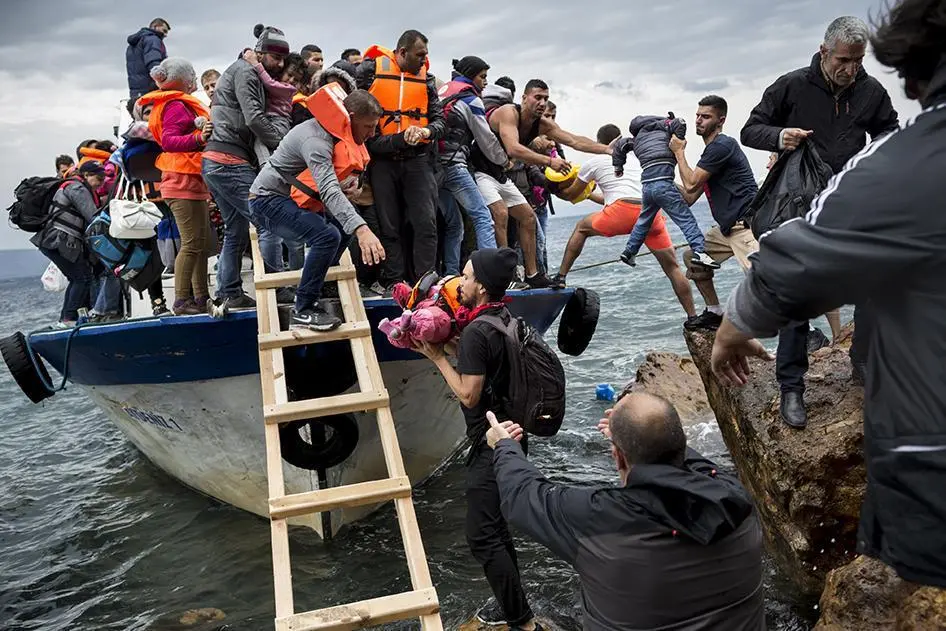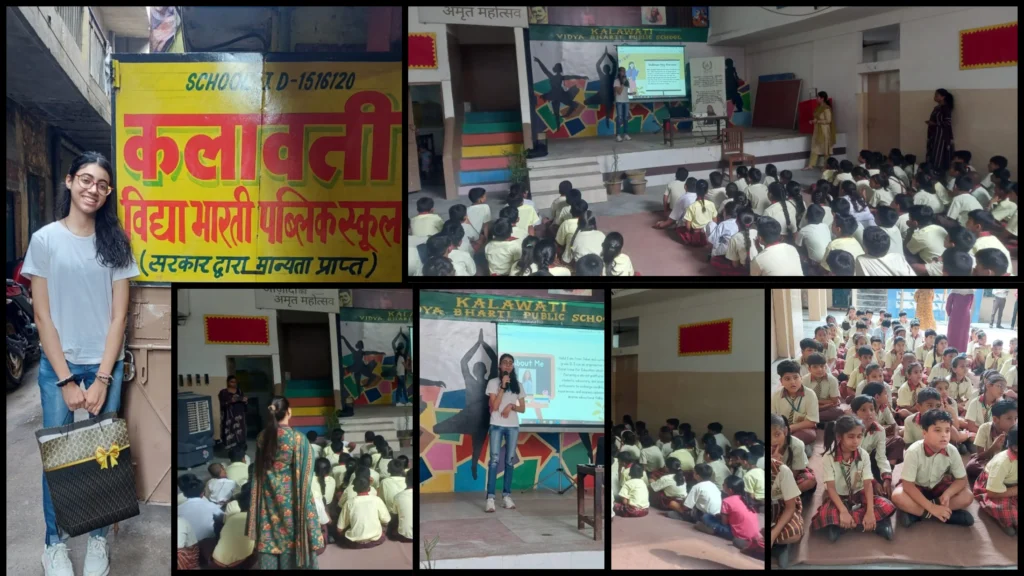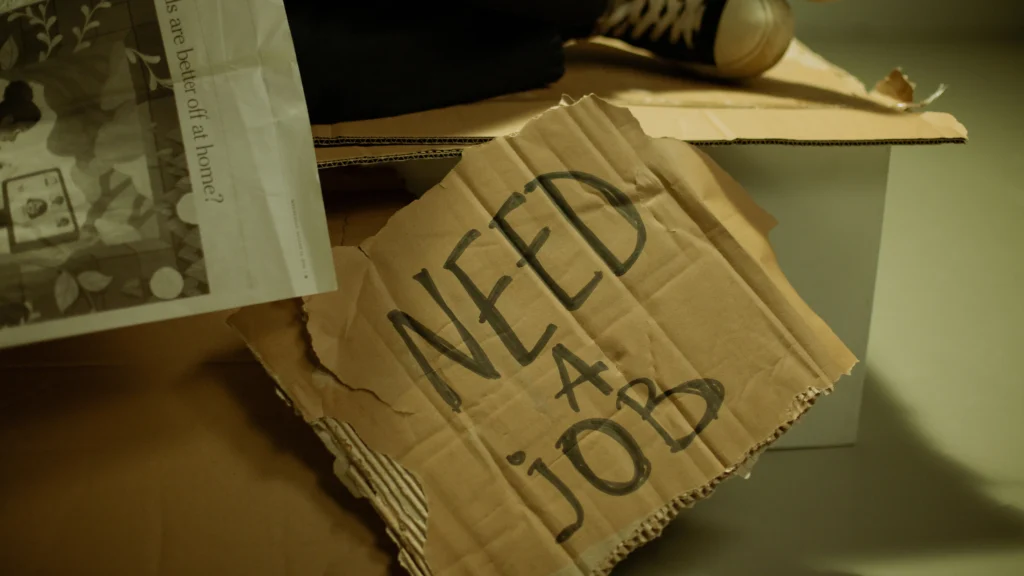Now Reading: How Resilience, Refugee Women, and Education are Rebuilding Lives Amid Crisis
-
01
How Resilience, Refugee Women, and Education are Rebuilding Lives Amid Crisis
- Home
- SOCIAL & GLOBAL ISSUES
- How Resilience, Refugee Women, and Education are Rebuilding Lives Amid Crisis
How Resilience, Refugee Women, and Education are Rebuilding Lives Amid Crisis
![]() Vaishnavi PrasadEDUCATION & LEARNING, SOCIAL & GLOBAL ISSUES, PERSONAL THOUGHTS & EXPERIENCES7 months ago1K Views
Vaishnavi PrasadEDUCATION & LEARNING, SOCIAL & GLOBAL ISSUES, PERSONAL THOUGHTS & EXPERIENCES7 months ago1K Views

By Vaishnavi Prasad
Millions around the world today are not only fleeing toward a better life—they are fleeing from danger, war, and persecution. The refugee crisis is more than a recurring news headline—it is the reality for over 100 million displaced individuals. But even in the bleakest corners of camps and conflict zones, stories of hope emerge—stories powered by education, resilience, and community.
Shelters of Strength
From the Jordanian deserts to the Mediterranean shores, grassroots programs are bringing light to displaced families. In the Za’atari refugee camp, schools built from shipping containers now educate thousands of Syrian children who once fled with only names to call their own. One such initiative is run by the International Rescue Committee (IRC), providing trauma-informed education, helping children reclaim a sense of normalcy. The Kiron Open Higher Education platform is helping refugees access university-level courses online. Education here is more than a right—it’s a lifeline, offering a path out of statelessness and into stability. Refugee women are not just recipients of aid—they are also leaders. The Amal Alliance, founded by Lebanese-American activist Danielle De La Fuente, supports displaced children through social-emotional learning, with female educators and former refugees at the helm.
The Women Rewriting Their Futures
In Uganda’s Bidi Bidi settlement—one of the world’s largest refugee camps—Amina, once a child bride fleeing South Sudan, now runs a girls’ learning circle, teaching young girls literacy, rights, and self-defense. Yusra Mardini, a Syrian refugee and Olympic swimmer, pulled a sinking raft to safety with her sister. Today, she advocates for refugee rights as a UNHCR Goodwill Ambassador, proving that refugees are more than victims—they are visionaries.
Even in Europe, where political tides are shifting, refugee women like Afghan human rights lawyer Shabnam Nasimi are becoming vocal advocates for asylum reform and integration.
Humanity Without Borders
The refugee crisis is global, but so is compassion. While politicians may debate, communities must act. Here’s how you can be part of this quiet revolution:
Support refugee education programs like Kiron or Amal Alliance
- Donate to frontline organizations such as UNHCR or Choose Love
- Advocate for humane asylum policies and integration support in your country
- Volunteer locally with language classes, housing support, or mentorship
Refugees don’t deserve just safety—they deserve respect and dignity. With every door opened, every voice heard, and every hand extended, we inch closer to a world where no one is left behind. Let’s stand not just in solidarity, but in action—with the displaced, for a future they help build.
Right now, there are more than 82 million people in the world who have been forcibly displaced from their homes – the highest figure recorded by the United Nations since the Second World War. Most people are displaced within their country of origin or remain close to it.
While some may be escaping persecution, most leave because they lack any meaningful option to remain. The lack of food, water, education, health care and a livelihood would not ordinarily and by themselves sustain a refugee claim under the 1951 Convention.
- Settlement and shelter.
- Water, sanitation and hygiene.
- Delivering supplies.
- Cash-based interventions.
A refugee crisis can refer to difficulties and/or dangerous situations in the reception of large groups of refugees. These could be forcibly displaced persons, internally displaced persons, asylum seekers or any other huge groups of migrants.
Related Posts
Previous Post
Next Post
Previous Post
Next Post
Recent Posts
Recent Comments
- Youth Empowerment: Build Leadership & Resilience in Youth on Master Your Mind: 5 Proven Study Hacks That Truly Work (Backed by Science & Real Student Wins)
- Youth Empowerment: Build Leadership & Resilience in Youth on Over-Informed, Under-Involved: The Paradox of Today’s Digital Generation
- Youth Empowerment: Build Leadership & Resilience on How Rural Education Initiatives and Unwavering Women Efforts are Changing the World
- Inclusive Education: Shaping Equitable Classrooms Today on Inclusive Education: Redefining Classrooms for a More Equitable Future
- Why I Started Voice for Education | Your Voice Matters Too on How Rural Education Initiatives and Unwavering Women Efforts are Changing the World
About Us
A platform created to highlight youth voices, share meaningful perspectives, and spark change through honest stories—one thought, one voice, one impact at a time.
globalvoiceforeducation@gmail.com











